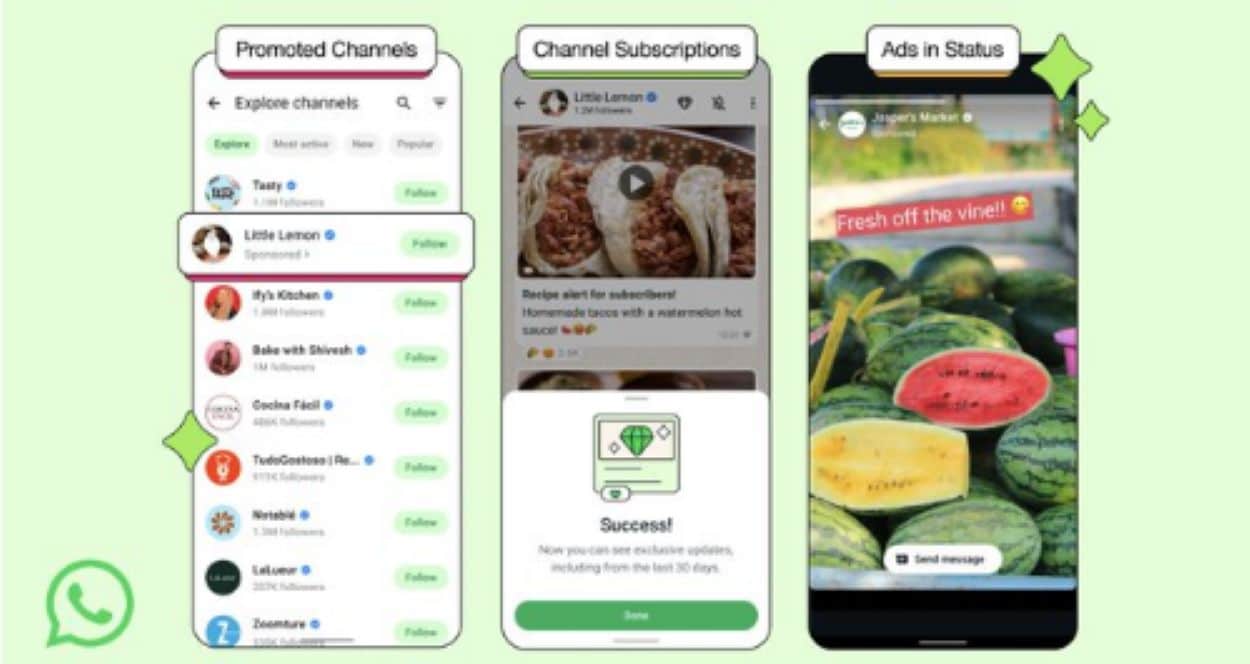WhatsApp recently shared updates through a blog post, highlighting changes to the Updates tab. These updates introduce three key features: for the first time, WhatsApp will display ads in the Status section under the Updates tab. These ads will allow businesses to showcase their products and services, making it easier for users to initiate conversations directly with them.
Advertisements will not be shown in personal chats, groups, or calls. WhatsApp emphasises that it will not sell or share phone numbers with advertisers. The ads will use limited data, which includes information such as the country, city, and language, along with details about channels, ad interactions, and preferences from the Meta Account Centre.
This move follows years of speculation, with former WhatsApp Vice President Chris Daniels noting in 2018 that ads would be a primary monetisation strategy. Will Cathcart, WhatsApp’s head, later confirmed ongoing development, culminating in this rollout.
Channel Subscriptions
WhatsApp now offers channel subscriptions, allowing users to support their favourite channels at a monthly fee. Subscribers gain access to exclusive updates, fostering closer connections with creators and organisations.
Subscriptions increase engagement with preferred channels and provide a revenue stream for channel administrators.
Promoted Channels
WhatsApp introduces Promoted Channels to boost discoverability. Admins can increase their Channel’s visibility in the directory, helping users find relevant content during searches.
Promoted Channels enable organisations to reach wider audiences. Enhanced search functionality ensures users discover channels that are aligned with their interests.
Today, @WhatsApp is introducing new features in the Updates tab (like channel subscriptions, promoted channels and ads in Status) without changing anything about your personal chats (they remain end to end encrypted). https://t.co/agscs7n1o6
— Meta Newsroom (@MetaNewsroom) June 16, 2025Background on WhatsApp’s Monetisation Journey
WhatsApp has explored advertising since 2018, when Meta began strategising ways to monetise the platform. Despite earlier rumours, the company prioritised user privacy, ensuring ads remain separate from personal communications. The current implementation reflects a careful balance, using minimal data for personalisation while safeguarding sensitive information like phone numbers and messages.
WhatsApp’s commitment to privacy is central to these updates:
- No Ads in Chats: Personal messages, calls, and groups remain ad-free.
- Limited Data Usage: Ads rely on non-sensitive data, such as location (country/city), language, and Channel interactions.
- Meta Integration: Ad personalisation may use data from linked Meta accounts only with user consent via the Accounts Centre.
- No Phone Number Sharing: WhatsApp explicitly states it will not share phone numbers with advertisers.
These measures align with user expectations for privacy, reinforcing WhatsApp’s trustworthiness.
Meta’s WhatsApp messaging service will begin showing ads, opening a new potential revenue stream as the company invests heavily in artificial intelligence and other long-term projects.
Caroline Hyde has more https://t.co/zmGhAYYfnp pic.twitter.com/2N6i7xubiM
— Bloomberg TV (@BloombergTV) June 16, 2025Implications for Businesses and Users
For Businesses
- Increased Reach: Ads in Status and Promoted Channels offer new ways to connect with customers.
- Revenue Opportunities: Channel subscriptions provide a sustainable income source for admins.
- Targeted Advertising: Limited data ensures ads reach relevant audiences without compromising privacy.
For Users
- Enhanced Discovery: Promoted Channels and subscriptions make finding and supporting favourite content easier.
- Ad Control: Ads are confined to the Updates tab, preserving the ad-free chat experience.
- Exclusive Content: Subscriptions unlock premium updates from the following channels.
WhatsApp’s introduction of ads in Status, Channel subscriptions, and Promoted Channels marks a significant step in its monetisation strategy. By prioritising user privacy and limiting ads to the Updates tab, WhatsApp ensures a seamless experience for its 2 billion users while empowering businesses.






